-
 Bitcoin
Bitcoin $106,754.6083
1.33% -
 Ethereum
Ethereum $2,625.8249
3.80% -
 Tether USDt
Tether USDt $1.0001
-0.03% -
 XRP
XRP $2.1891
1.67% -
 BNB
BNB $654.5220
0.66% -
 Solana
Solana $156.9428
7.28% -
 USDC
USDC $0.9998
0.00% -
 Dogecoin
Dogecoin $0.1780
1.14% -
 TRON
TRON $0.2706
-0.16% -
 Cardano
Cardano $0.6470
2.77% -
 Hyperliquid
Hyperliquid $44.6467
10.24% -
 Sui
Sui $3.1128
3.86% -
 Bitcoin Cash
Bitcoin Cash $455.7646
3.00% -
 Chainlink
Chainlink $13.6858
4.08% -
 UNUS SED LEO
UNUS SED LEO $9.2682
0.21% -
 Avalanche
Avalanche $19.7433
3.79% -
 Stellar
Stellar $0.2616
1.64% -
 Toncoin
Toncoin $3.0222
2.19% -
 Shiba Inu
Shiba Inu $0.0...01220
1.49% -
 Hedera
Hedera $0.1580
2.75% -
 Litecoin
Litecoin $87.4964
2.29% -
 Polkadot
Polkadot $3.8958
3.05% -
 Ethena USDe
Ethena USDe $1.0000
-0.04% -
 Monero
Monero $317.2263
0.26% -
 Bitget Token
Bitget Token $4.5985
1.68% -
 Dai
Dai $0.9999
0.00% -
 Pepe
Pepe $0.0...01140
2.44% -
 Uniswap
Uniswap $7.6065
5.29% -
 Pi
Pi $0.6042
-2.00% -
 Aave
Aave $289.6343
6.02%
What wallet knowledge should ordinary users master?
To effectively navigate the cryptocurrency landscape, ordinary users should master the knowledge of various wallet types, secure private key management, wallet protection measures, and efficient wallet utilization techniques.
Feb 22, 2025 at 05:06 am

What Wallet Knowledge Should Ordinary Users Master?
As the cryptocurrency space continues to evolve and expand, the importance of understanding and utilizing secure and reliable wallets becomes paramount. Ordinary users who are new to the world of cryptocurrencies may find themselves overwhelmed with the vast array of wallet options available and the technical jargon associated with them. This article aims to provide a comprehensive guide to wallet knowledge that ordinary users should master to navigate the cryptocurrency landscape safely and effectively.
Key Points:
- Understanding the Different Types of Cryptocurrency Wallets
- Choosing the Right Wallet for Your Needs
- Storing and Backing Up Your Private Keys
- Protecting Your Wallet from Security Threats
- Using Cryptocurrency Wallets Effectively
Understanding the Different Types of Cryptocurrency Wallets
The first step in mastering wallet knowledge is understanding the different types of cryptocurrency wallets available. Each type of wallet has its own advantages and disadvantages, and choosing the right wallet depends on your specific needs and preferences.
1. Hardware Wallets
Hardware wallets are physical devices that store your private keys offline. They offer the highest level of security because they are not connected to the internet, making them immune to online attacks. Hardware wallets are a good option for users who store large amounts of cryptocurrency and value security above all else.
2. Software Wallets
Software wallets are applications that you install on your computer or mobile device. They are more convenient than hardware wallets because they allow you to access your funds from anywhere with an internet connection. However, they are less secure than hardware wallets because they are vulnerable to online attacks.
3. Paper Wallets
Paper wallets are simply pieces of paper that contain your public and private keys. They are the most basic type of wallet and offer the lowest level of security. However, they can be useful for storing small amounts of cryptocurrency or for making backup copies of your private keys.
4. Exchange Wallets
Exchange wallets are online wallets that are provided by cryptocurrency exchanges. They are convenient because they allow you to store, buy, and sell cryptocurrencies all in one place. However, exchange wallets are less secure than hardware wallets or software wallets because they are controlled by a third party.
Choosing the Right Wallet for Your Needs
Once you understand the different types of cryptocurrency wallets available, you need to choose the right wallet for your needs. Consider the following factors when making your decision:
- Security: How important is security to you? If you store large amounts of cryptocurrency, you should choose a hardware wallet or a software wallet with strong security features.
- Convenience: How easy do you want your wallet to be to use? Hardware wallets are more secure but less convenient than software wallets.
- Features: What features are important to you? Some wallets offer additional features, such as support for multiple currencies or the ability to stake your cryptocurrency.
Storing and Backing Up Your Private Keys
Your private keys are the most important part of your cryptocurrency wallet. They allow you to access your funds, so it is important to store them securely and back them up in case of loss.
Here are some tips for storing and backing up your private keys:
- Use a strong password: Choose a password that is at least 12 characters long and contains a mix of upper and lower case letters, numbers, and symbols.
- Enable two-factor authentication: This adds an extra layer of security to your account by requiring you to enter a code from your phone or email when you log in.
- Back up your private keys: Make copies of your private keys and store them in multiple locations. You can store them on a USB drive, a piece of paper, or in a cloud storage service.
Protecting Your Wallet from Security Threats
Cryptocurrency wallets are a target for hackers, so it is important to take steps to protect your wallet from security threats.
Here are some tips for protecting your wallet from security threats:
- Keep your software up to date: Software updates often contain security patches, so it is important to keep your wallet software up to date.
- Be aware of phishing scams: Phishing scams are emails or websites that try to trick you into giving up your private keys. Never click on links or enter your private keys into a website that you don't trust.
- Use a strong antivirus software: Antivirus software can help protect your computer from malware that can steal your private keys.
- Be careful when connecting to public Wi-Fi: Public Wi-Fi networks are often insecure, so it is best to avoid using them to access your cryptocurrency wallet.
Using Cryptocurrency Wallets Effectively
Once you have chosen a wallet and set it up, you need to learn how to use it effectively.
Here are some tips for using cryptocurrency wallets effectively:
- Understand the basics of cryptocurrency: Before you start using a cryptocurrency wallet, it is important to understand the basics of cryptocurrency, such as how to send and receive funds.
- Use a reputable exchange: If you are buying or selling cryptocurrency, use a reputable exchange that has a good track record of security and customer service.
- Be aware of transaction fees: When you send or receive cryptocurrency, you will usually have to pay a transaction fee. The fee may vary depending on the cryptocurrency and the wallet you are using.
- Be patient: Cryptocurrency transactions can sometimes take time to complete. Be patient and wait for the transaction to complete before you try to send or receive more funds.
FAQs
Q: What is the best cryptocurrency wallet?
A: The best cryptocurrency wallet for you depends on your specific needs and preferences. Consider factors such as security, convenience, and features when making your decision.
Q: How do I keep my cryptocurrency wallet safe?
A: To keep your cryptocurrency wallet safe, use a strong password, enable two-factor authentication, back up your private keys, and protect your wallet from security threats such as phishing scams and malware.
Q: How do I use a cryptocurrency wallet?
A: To use a cryptocurrency wallet, you need to understand the basics of cryptocurrency, such as how to send and receive funds. Use a reputable exchange to buy or sell cryptocurrency, be aware of transaction fees, and be patient when sending or receiving funds.
Disclaimer:info@kdj.com
The information provided is not trading advice. kdj.com does not assume any responsibility for any investments made based on the information provided in this article. Cryptocurrencies are highly volatile and it is highly recommended that you invest with caution after thorough research!
If you believe that the content used on this website infringes your copyright, please contact us immediately (info@kdj.com) and we will delete it promptly.
- 2025-W Uncirculated American Gold Eagle and Dr. Vera Rubin Quarter Mark New Products
- 2025-06-13 06:25:13
- Ruvi AI (RVU) Leverages Blockchain and Artificial Intelligence to Disrupt Marketing, Entertainment, and Finance
- 2025-06-13 07:05:12
- H100 Group AB Raises 101 Million SEK (Approximately $10.6 Million) to Bolster Bitcoin Reserves
- 2025-06-13 06:25:13
- Galaxy Digital CEO Mike Novogratz Says Bitcoin Will Replace Gold and Go to $1,000,000
- 2025-06-13 06:45:13
- Trust Wallet Token (TWT) Price Drops 5.7% as RWA Integration Plans Ignite Excitement
- 2025-06-13 06:45:13
- Ethereum (ETH) Is in the Second Phase of a Three-Stage Market Cycle
- 2025-06-13 07:25:13
Related knowledge
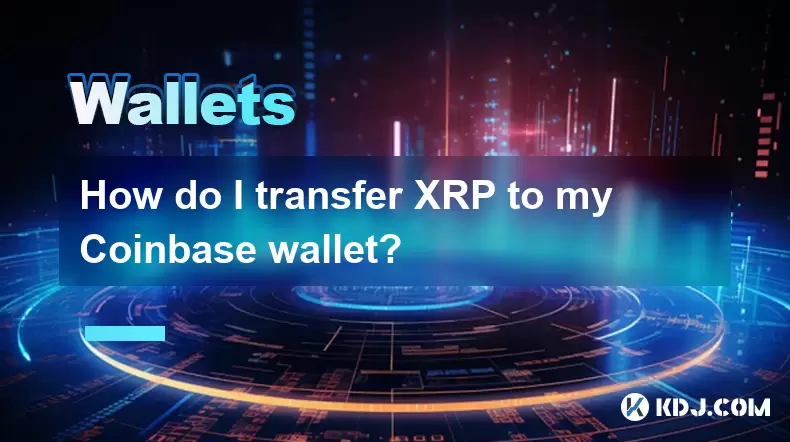
How do I transfer XRP to my Coinbase wallet?
Jun 16,2025 at 04:57pm
Understanding the Basics of XRP and Coinbase CompatibilityBefore initiating any transfer, it’s essential to confirm whether Coinbase supports XRP. As of recent updates, Coinbase has resumed offering XRP trading services on its platform after a period of uncertainty due to legal issues involving Ripple Labs. However, availability may vary depending on yo...

How do I deposit BNB into my Trust Wallet?
Jun 15,2025 at 03:56pm
Understanding BNB and Trust Wallet CompatibilityBefore initiating a deposit, it’s crucial to understand what BNB is and how it interacts with Trust Wallet. BNB (Binance Coin) is a utility token created by the Binance exchange. It can be used for paying transaction fees, participating in token sales, and more. Trust Wallet, on the other hand, is a mobile...
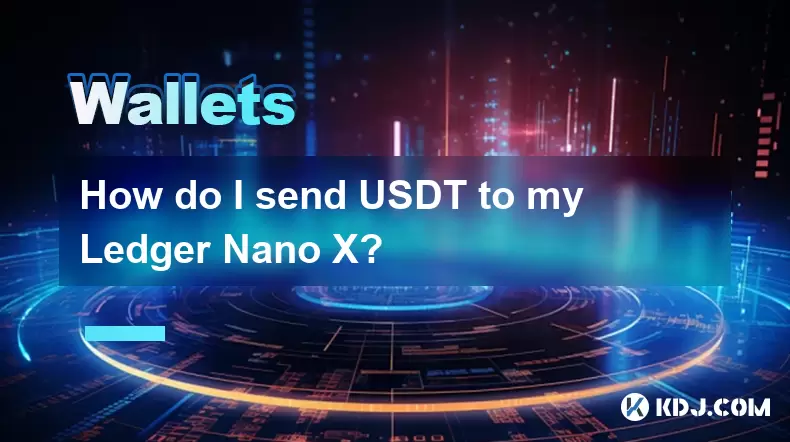
How do I send USDT to my Ledger Nano X?
Jun 15,2025 at 06:28am
What is USDT and Why Use Ledger Nano X?USDT, also known as Tether, is one of the most widely used stablecoins in the cryptocurrency ecosystem. It operates on various blockchain networks such as Ethereum (ERC-20), Tron (TRC-20), and others, offering users a digital asset pegged 1:1 to the US dollar. When it comes to storing USDT securely, hardware wallet...
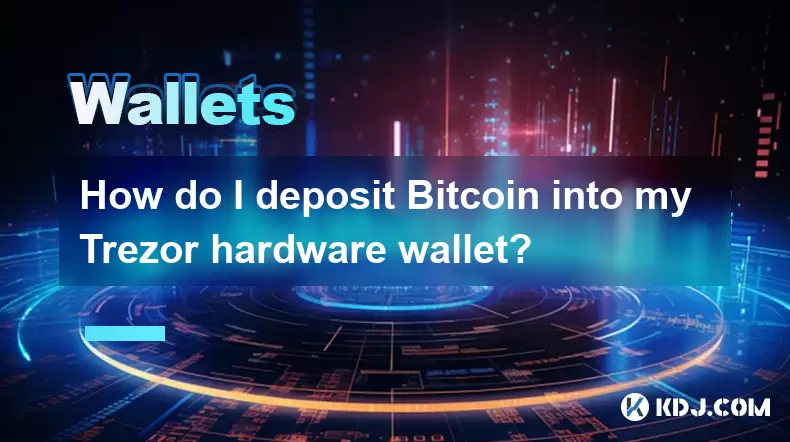
How do I deposit Bitcoin into my Trezor hardware wallet?
Jun 14,2025 at 12:29pm
What is a Trezor Hardware Wallet?A Trezor hardware wallet is a secure device designed to store cryptocurrencies offline, protecting them from online threats. Unlike software wallets, which are vulnerable to hacking and malware, Trezor stores private keys on the physical device itself. This ensures that transactions can only be approved by physically int...
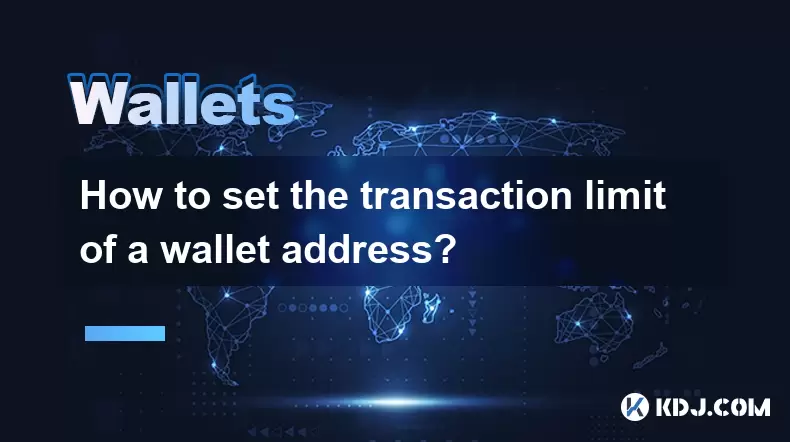
How to set the transaction limit of a wallet address?
Jun 16,2025 at 04:08am
Understanding the Concept of Transaction Limits in Cryptocurrency WalletsIn the cryptocurrency ecosystem, transaction limits refer to predefined restrictions placed on the amount of digital assets that can be sent or received by a wallet address within a specified timeframe. These limits are typically enforced by platforms such as exchanges, custodial w...
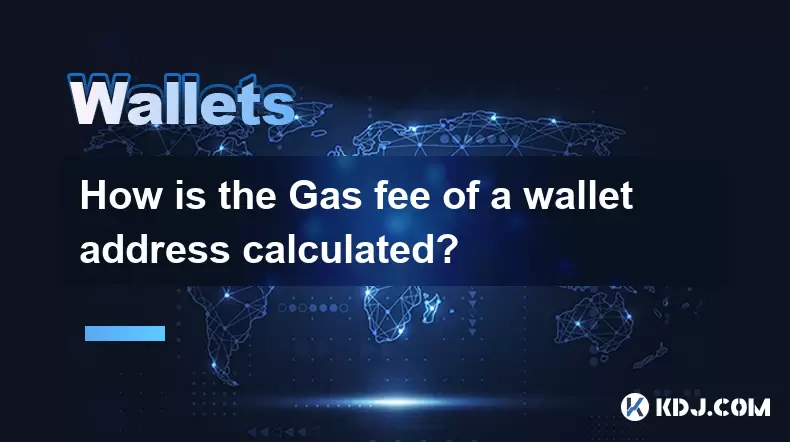
How is the Gas fee of a wallet address calculated?
Jun 14,2025 at 07:57pm
Understanding the Basics of Gas Fees in Blockchain TransactionsIn the cryptocurrency ecosystem, particularly within Ethereum-based networks, a Gas fee is an essential component of executing transactions or smart contract operations. The Gas fee serves as compensation for miners or validators who process and confirm transactions on the blockchain. It is ...

How do I transfer XRP to my Coinbase wallet?
Jun 16,2025 at 04:57pm
Understanding the Basics of XRP and Coinbase CompatibilityBefore initiating any transfer, it’s essential to confirm whether Coinbase supports XRP. As of recent updates, Coinbase has resumed offering XRP trading services on its platform after a period of uncertainty due to legal issues involving Ripple Labs. However, availability may vary depending on yo...

How do I deposit BNB into my Trust Wallet?
Jun 15,2025 at 03:56pm
Understanding BNB and Trust Wallet CompatibilityBefore initiating a deposit, it’s crucial to understand what BNB is and how it interacts with Trust Wallet. BNB (Binance Coin) is a utility token created by the Binance exchange. It can be used for paying transaction fees, participating in token sales, and more. Trust Wallet, on the other hand, is a mobile...

How do I send USDT to my Ledger Nano X?
Jun 15,2025 at 06:28am
What is USDT and Why Use Ledger Nano X?USDT, also known as Tether, is one of the most widely used stablecoins in the cryptocurrency ecosystem. It operates on various blockchain networks such as Ethereum (ERC-20), Tron (TRC-20), and others, offering users a digital asset pegged 1:1 to the US dollar. When it comes to storing USDT securely, hardware wallet...

How do I deposit Bitcoin into my Trezor hardware wallet?
Jun 14,2025 at 12:29pm
What is a Trezor Hardware Wallet?A Trezor hardware wallet is a secure device designed to store cryptocurrencies offline, protecting them from online threats. Unlike software wallets, which are vulnerable to hacking and malware, Trezor stores private keys on the physical device itself. This ensures that transactions can only be approved by physically int...

How to set the transaction limit of a wallet address?
Jun 16,2025 at 04:08am
Understanding the Concept of Transaction Limits in Cryptocurrency WalletsIn the cryptocurrency ecosystem, transaction limits refer to predefined restrictions placed on the amount of digital assets that can be sent or received by a wallet address within a specified timeframe. These limits are typically enforced by platforms such as exchanges, custodial w...

How is the Gas fee of a wallet address calculated?
Jun 14,2025 at 07:57pm
Understanding the Basics of Gas Fees in Blockchain TransactionsIn the cryptocurrency ecosystem, particularly within Ethereum-based networks, a Gas fee is an essential component of executing transactions or smart contract operations. The Gas fee serves as compensation for miners or validators who process and confirm transactions on the blockchain. It is ...
See all articles

























































































